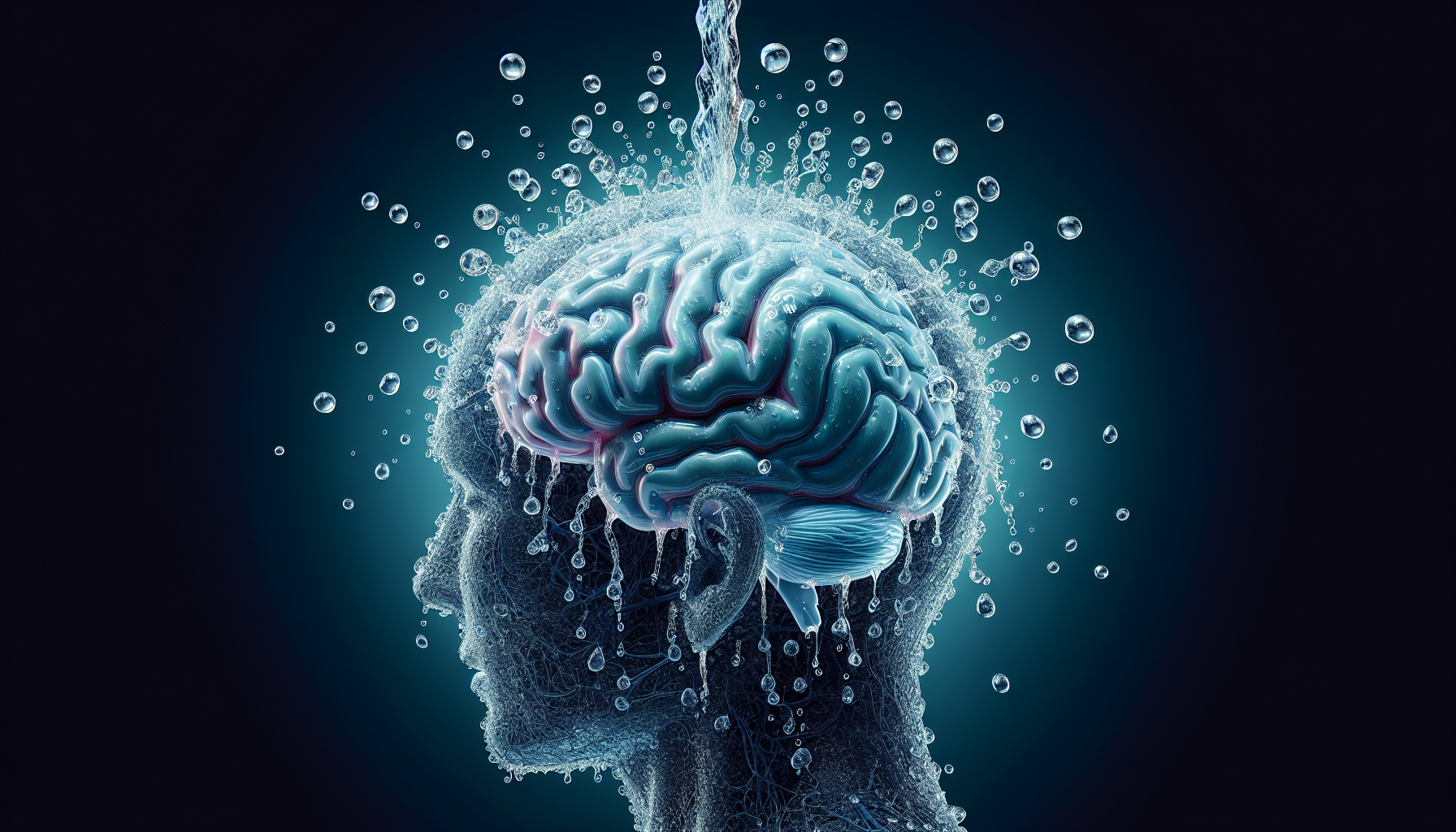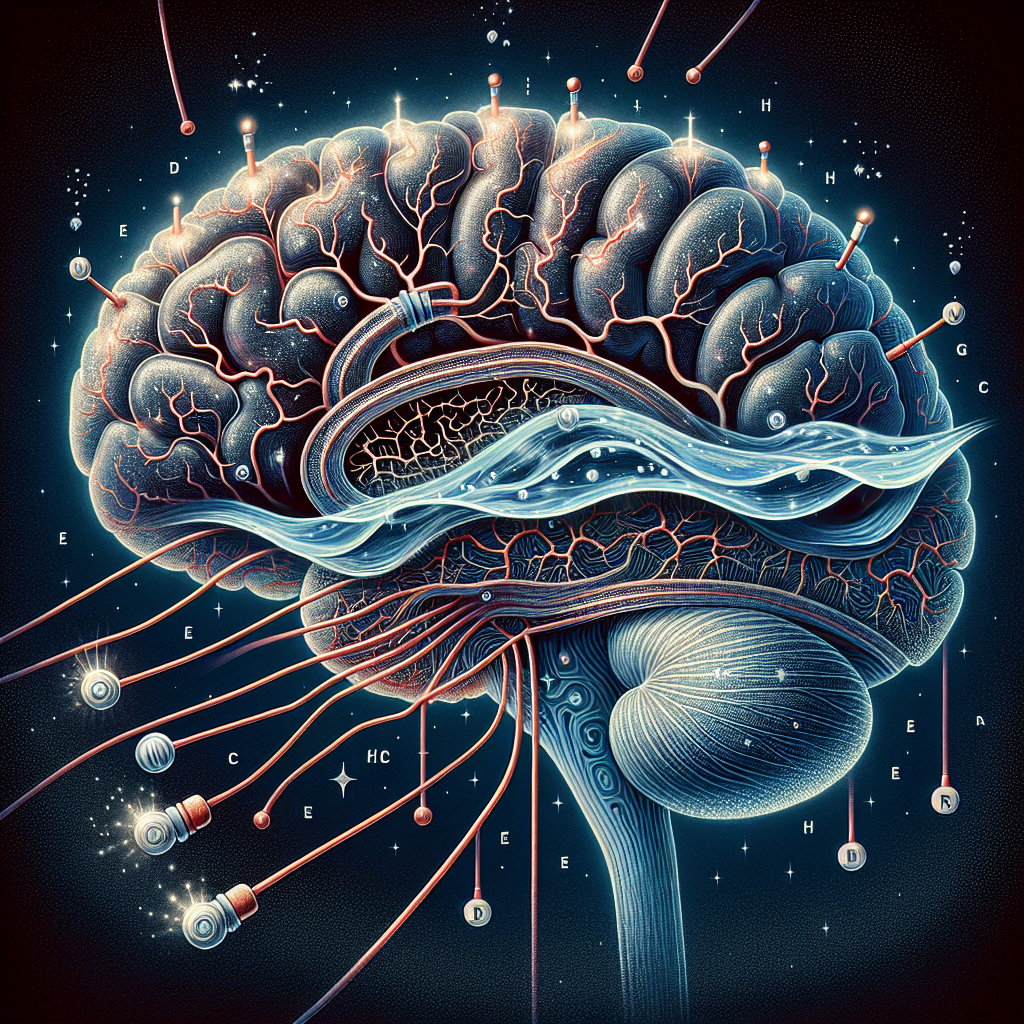Proper hydration is essential for maintaining optimal brain function and energy levels. The brain is composed of approximately 75% water, which implies that even slight dehydration can have significant effects on cognitive performance, mood, and overall mental health. In this comprehensive exploration, we will delve into the mechanisms through which hydration influences brain energy levels and cognitive functions, supported by the latest scientific research and expert insights.
The Importance of Water for Brain Function
Water is a critical component of various physiological processes in the brain, including the production of hormones and neurotransmitters. It aids in delivering essential nutrients to brain cells and removes toxins and other waste products. When the body is dehydrated, the brain cannot perform these functions efficiently, leading to reduced attention, memory, and executive function.
The relationship between hydration and brain health is evident in numerous studies. For instance, dehydration can result in brain shrinkage, adversely affecting cognitive performance. A hydrated brain, on the other hand, maintains optimal volume and can operate effectively, processing information quickly and maintaining concentration.
Hydration and Cognitive Performance
Cognitive tasks, ranging from simple to complex, can be impacted by hydration levels. Dehydration can impair attention, affect psychomotor skills, and disrupt our ability to make decisions and solve problems. Even mild dehydration – a body water loss of 1-3% – can impair tasks that require attention, psychomotor, and immediate memory skills, as indicated by research published in the Journal of the American College of Nutrition.
Maintaining proper hydration is crucial for brain health, as the brain does not store water. Consistent water intake is necessary to ensure that the brain receives the hydration it needs to function at peak capacity. This is particularly important for individuals engaged in tasks that require prolonged mental exertion or those in environments that can lead to rapid dehydration, such as hot climates or heated indoor facilities.
The Science Behind Hydration and Brain Energy
The brain’s energy reserves are predominantly generated from glucose, which is transported through the bloodstream. Water is essential for the blood’s ability to transport glucose and other nutrients to the brain cells. When dehydrated, blood volume decreases, leading to reduced delivery of glucose to the brain, and consequently, a decrease in energy levels. This can result in feelings of fatigue or lethargy, as observed in research published in the European Journal of Clinical Nutrition.
Moreover, proper hydration is linked to brain resilience and the capacity to manage stress. It has been suggested that hydration can enhance the brain’s ability to cope with stress, as explored in the article on Mental Wellness Strategies for Managing Long-Term Stress. The brain’s stress response can be more controlled and balanced when adequately hydrated, aiding in the overall mental well-being.
Electrolytes: The Conductors of Brain Energy
Electrolytes such as sodium, potassium, and magnesium are vital for nerve function. They facilitate the electrical signals that constitute thought processes, muscle contractions, and heart function. Dehydration can disrupt electrolyte balance, impairing these signals and affecting brain function and energy levels.
To maintain optimal electrolyte balance, one should not only drink water but also consume beverages that replenish electrolytes, especially after intense exercise or excessive sweating. Foods rich in electrolytes, such as bananas, dairy products, and leafy greens, can also help in maintaining this balance.
Strategies for Maintaining Optimal Hydration
Staying hydrated is a daily duty, and here are some strategies to ensure that you’re getting enough water for your brain to thrive:
- Monitor Your Intake: Aim for at least 8-10 cups of water per day, and more if you are active or live in a hot climate.
- Eat Water-Rich Foods: Incorporate fruits and vegetables with high water content, such as cucumbers, oranges, and watermelon, into your diet.
- Limit Diuretics: Beverages like coffee and alcohol can increase fluid loss. Limit their intake and compensate by drinking additional water.
- Use Reminders: Set reminders to take water breaks throughout the day, especially if you have a busy schedule.
Recognizing Dehydration
Understanding the signs of dehydration can help in maintaining proper hydration levels. Symptoms can include:
- Thirst
- Dry mouth
- Fatigue
- Dizziness
- Dark urine
- Reduced urine output
If you experience these symptoms, increase your water intake, and consider an electrolyte-replenishing beverage if necessary.
The Broader Context of Brain Health
Hydration is just one component of maintaining a healthy brain. Other factors, such as nutrition, exercise, and stress management, play significant roles. For instance, the benefits of brain health in achieving work-life balance highlight the importance of a holistic approach to cognitive function and mental well-being.
Additionally, understanding the connection between mental health and neuroplasticity can provide insights into how lifestyle choices affect the brain’s ability to adapt and grow.
External Resources for Further Exploration
- A study on the effects of water supplementation on cognitive performance in children (British Journal of Nutrition)
- Research on the impact of hydration on gray matter volume (NeuroImage)
- Insights into the role of hydration in cognitive aging (Frontiers in Human Neuroscience)
- An exploration of the relationship between fluid intake and cognitive performance in older adults (The American Journal of Clinical Nutrition)
Proper hydration is an easily modifiable factor that can have a profound impact on brain energy levels and overall cognitive health. By understanding the link between hydration and brain function and implementing strategies to maintain optimal hydration, we can support our mental performance and well-being. Remember to listen to your body’s cues for water needs and make hydration a priority in your daily routine.



